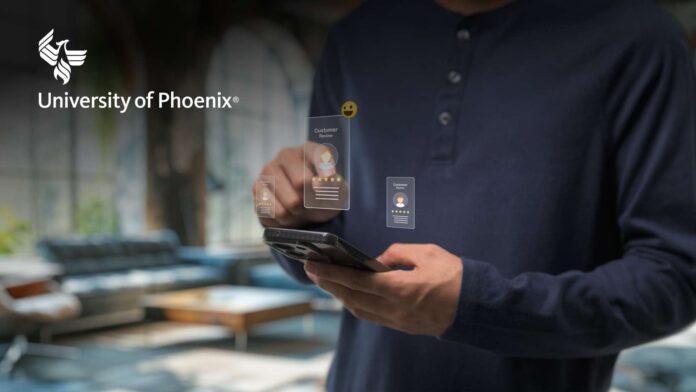The University of Phoenix is pushing digital credentials one step closer to mainstream adoption, piloting the interoperable exchange of Learning and Employment Records (LERs) into a secure digital wallet. The goal? To give learners lifelong control over their skills, badges, and achievements while offering employers a clearer, tamper-proof snapshot of candidate capabilities.
This initiative reflects a growing consensus: in a labor market increasingly driven by skills-based hiring and AI-powered HR platforms, credentials need to move beyond PDFs and proprietary portals. Interoperable LERs promise exactly that—portable, verifiable records that can travel with a worker across jobs, industries, and education providers.
From Badges to Wallets
The pilot builds on the University’s long-standing emphasis on career relevance for working adults. Students already have access to digital badges and skill-mapped curricula, but the digital wallet project moves things into a future-proofed ecosystem where learners—not institutions—own their verified data.
“We are focused on building practical opportunities that provide our learners with the ability to preserve and present credentials of all kinds, including degrees, badges, skills, and achievements outside of a classroom,” said John Woods, Provost and Chief Academic Officer.
Think of it as LinkedIn endorsements, but cryptographically verified. Using standards like 1EdTech’s Open Badges 3.0 and Comprehensive Learner Record 2.0—both based on W3C Verifiable Credentials—the wallet ensures records can’t be altered without detection. Students can then selectively disclose them to employers, licensing boards, or universities.
Testing the Tech
In collaboration with the U.S. Chamber of Commerce Foundation and Education Design Lab’s Experience You Project, the University teamed with Gobekli, a startup behind the TalentPass digital wallet. Roughly 30 students participated in 2023’s pilot, providing feedback on badge use, wallet usability, and the overall LER ecosystem design.
The pilot also passed a critical milestone: demonstrating that the University’s LERs could be successfully handed off to an independent credential wallet—validating interoperability, not just theory. That’s a big deal, given that many LER initiatives stall at the “siloed pilot” stage.
The second round of testing in 2024 is now extending into real-world field tests, moving the concept from controlled experiments into practical use cases.
A Crowded, Urgent Space
The University of Phoenix isn’t alone in chasing LERs. Heavyweights like IBM, Walmart, and Salesforce have all explored digital credentialing, while Lumina Foundation and standards bodies like 1EdTech push for alignment across higher ed and commerce. The race isn’t about who builds the prettiest wallet—it’s about ecosystem adoption. Employers will only benefit if credentials are consistent, portable, and trusted across platforms.
“We are pursuing a learning and employment record ecosystem that can provide even more than an immediate solution that would benefit learners and employers alike,” said Doris Savron, Vice Provost. “As partners join the ecosystem, they can bring their own data and innovation into the process; other solutions, such as AI, can continue to enrich the ecosystem and provide even more value.”
That framing—future-proofed, AI-ready, open data—is what could separate University of Phoenix’s work from many smaller pilots that never scale.
The Skills-in-Weeks Vision
The wallet pilot complements the University’s broader Skills in Weeks® approach, which emphasizes short, stackable learning outcomes. A skills achievement record already compiles courses, degrees, self-reported and verified skills, and badges. The digital wallet is the next step: making those achievements instantly portable and verifiable across platforms.
Coupled with tools like the University’s Career Navigator and its Career Services for Life® commitment, the wallet fits into a strategy that tries to answer the fundamental question dogging higher education today: How do you prove—quickly and credibly—that what you learned is actually valuable to the market?
Why It Matters
The LER movement sits at the crossroads of HR tech, edtech, and workforce mobility. If successful, digital wallets could streamline recruiting, cut down on resume fraud, and make skills-based hiring more practical at scale. For learners—especially working adults—the benefit is control. They no longer depend on a registrar’s office or an employer’s HR department to validate what they know.
For now, University of Phoenix and Gobekli’s TalentPass are showing that interoperable, student-owned records aren’t just aspirational—they’re technically feasible. The harder part comes next: getting the entire ecosystem to adopt them.
Join thousands of HR leaders who rely on HRTechEdge for the latest in workforce technology, AI-driven HR solutions, and strategic insights
Business Wire, a Berkshire Hathaway company, is the global leader in press release distribution and regulatory disclosure. Public relations, investor relations, public policy and marketing professionals rely on Business Wire for secure and accurate distribution of market-moving news and multimedia. Founded in 1961, Business Wire is a trusted source for news organizations, journalists, investment professionals and regulatory authorities, delivering news directly into editorial systems and leading online news sources via its multi-patented NX network. Business Wire’s global newsrooms are available to meet the needs of communications professionals and news media worldwide.







